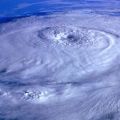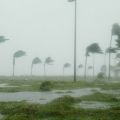Hurricane season begins May 15 or June 1st and ends November 30th. Regardless of the forecast, understanding the fundamentals in hurricane preparation is critical.
The Basics
Understanding the fundamentals of a hurricane is important. As National Hurricane Center officials, weather forecasters and news reporters communicate what to do before, during and after the hurricane, recognizing basic knowledge will be beneficial and instill confidence when dealing with the situation.
- Tropical Storm – Winds 39-73 mph
- Category 1 Hurricane – Winds 74-95 mph (64-82 kt)
- Category 2 Hurricane – Winds 96-110 mph (83-95 kt)
- Category 3 Hurricane – Winds 111-130 mph (96-113 kt)
- Category 4 Hurricane – Winds 131-155 mph (114-135 kt)
- Category 5 Hurricane – Winds 156 mph and up (135+ kt)
Hurricane Names
Hurricane names are randomly picked, rotated and recycled every 6 years. Super-catastrophic, severely deadly and over-costly hurricane names are officially retired to avoid confusion with current names.
2021 Hurricane Names:
Ana, Bill, Claudette, Danny, Elsa, Fred, Grace, Henri, Ida, Julian, Kate, Larry, Mindy, Nicholas, Odette, Peter, Rose, Sam, Teresa, Victor and Wanda
- Eastern Pacific: May 15 to November 30
- Atlantic: June 1 to November 30
- Central Pacific: June 1 to November 30
Hurricane Preparation
Devise a plan including before-hurricane and after-hurricane things to do. Struggling to create a plan? Copy a nearby friend’s or trusted neighbor’s and adjust based on your needs.
For those with an existing plan, make the necessary COVID-19 updates. Check with the Centers for Disease Control (CDC) for current Coronavirus (COVID-19) info.
Ask neighbors how they handled previous storms.
Create an inventory list and update current supplies through the end of the season with an extra few-month supply added (precautionary if the hurricane extends). Stock items from basic needs to emergency necessities including emergency food, water, and medical supplies.
Assemble your kit in a water-resistant bag that is easy to transport. Sort and label items for fast and easy accessibility:
- A printed copy of the hurricane plan for other members (in case of separation)
- Container for important documents (water-sealed)
- Cooler with packs
- Ensure car and generator tanks are full
- Extra cash, ATMs are usually offline
- First-aid kit (complete with prescription medications)
- Flashlights with extra batteries
- Lighter (extra matches)
- Medications
- Mobile phone surplus charger
- Non-perishable food (3 days or more)
- Personal sanitation and hygiene items
- Radio with extra batteries (battery operated)
- Recreational games and reading materials (board games, cards)
- Senior citizens/Special needs items: baby supplies/pet supplies
- Water (at least 3 days)
5. Orient family members.
Discuss, teach and conduct a trial-run hurricane drill with family members. Learning through practice decreases fear and promotes focus during tense situations.
Protect your home from high winds, storm surges and flooding by covering vulnerable entry and exit points:
- Bring outdoor furniture, garbage cans, and items not tied down indoors
- Clear gutters and drains
- Install impact windows (vinyl/aluminum)
- Patch rooftops using roof tarping (fast installation/increased savings)
- Reinforce garage doors (flood/storm surges)
- Use wooden panels or hurricane shutters to seal windows
Trim trees and shrubs, particularly those near the house.
Check evacuation zones before the storm and practice with family members and pets.
Gather personal documents including property certificates and insurance policies and place them in a water-proof or secured bag. Keep an extra copy of the documents outside the home.
Sign up to receive alerts through apps, real-time alerts from the National Weather Service or different agencies such as community alerts, Emergency Alert System (EAS), and Wireless Emergency Alerts (WEA).
Help neighbors, the elderly, or others in need.
COVID-19 Reminders:
- Get the COVID-19 vaccine before the season starts. The COVID-19 vaccine provides protection from COVID-19.
- Before entering an evacuation area, don’t forget to follow the latest COVID-19 protection information from the Centers for Disease Control and Prevention (CDC).
- Frequently use hand sanitizer and wear well-fitted masks.
- Practice social distancing.
- Wash hands often and avoids touching surfaces.
- Wear protective clothing and implement a buddy system where possible.
Florida’s Water Mold Cleanup & Restoration Experts
Secure and protect your property from hurricanes and severe storms. Armstrong Water Mold Cleanup and Restoration’s roof tarping system safeguards roofs or temporary roofing from high wind exposure, reducing further damages and saving costly repairs.
- Disaster Restoration
- Home Improvements
- Home Improvements
- Residential and Commercial Roof Tarps
- Water and Mold Services
To discover more, call Armstrong Water Mold Cleanup and Restoration at (239) 592-3777 or visit our website at https://www.armstrongwatermoldcleanup.com/contact/ today.


